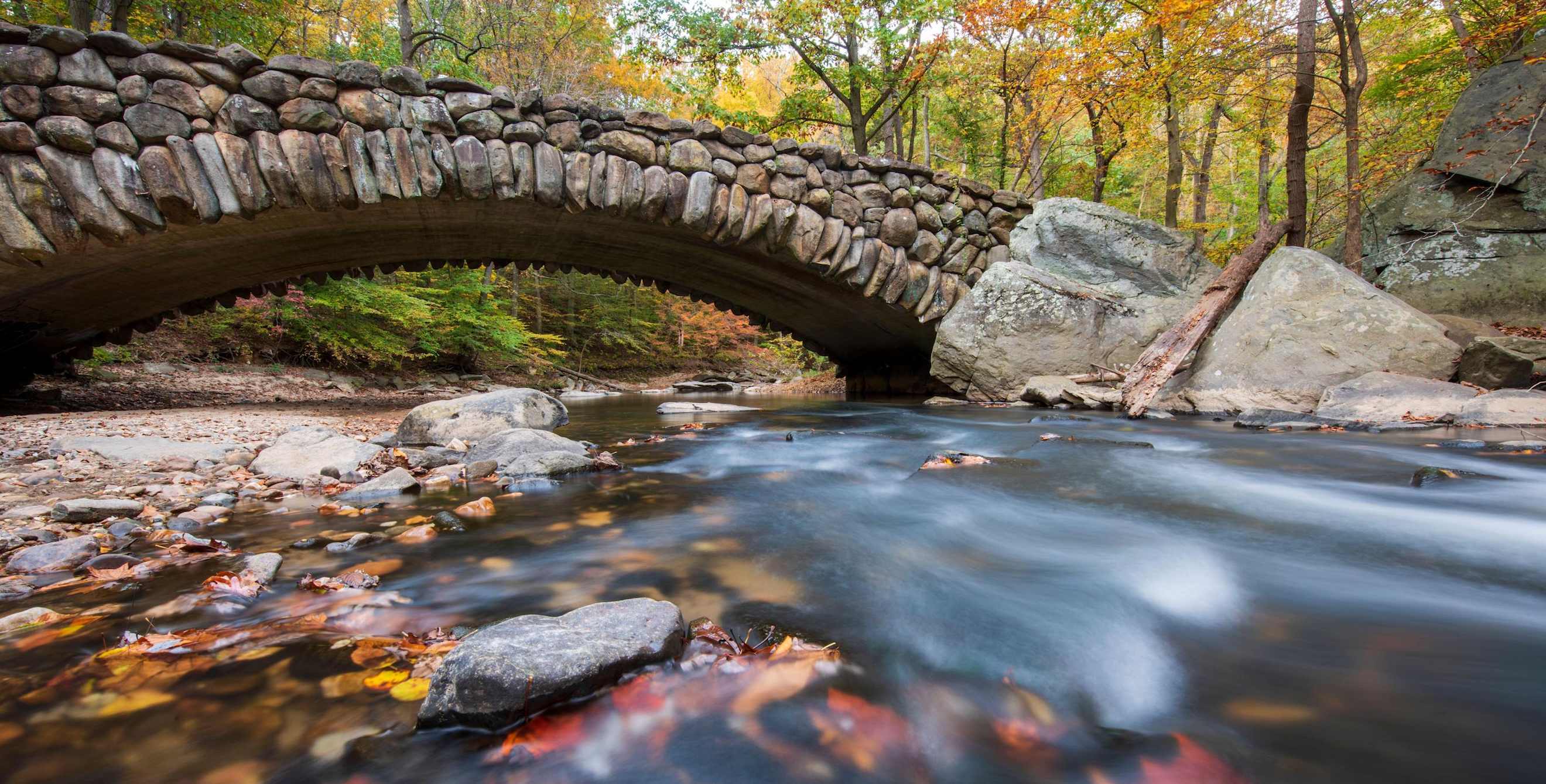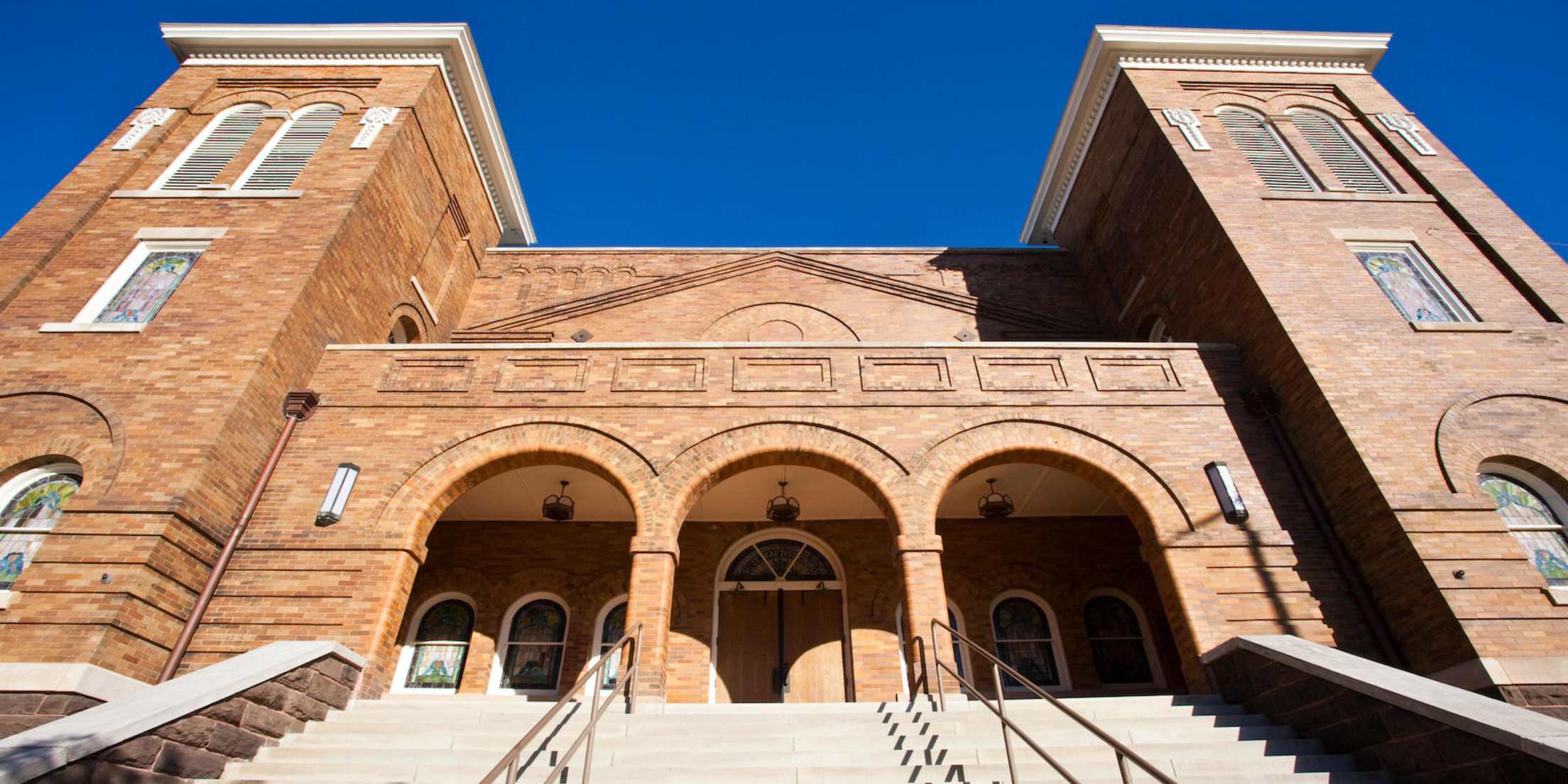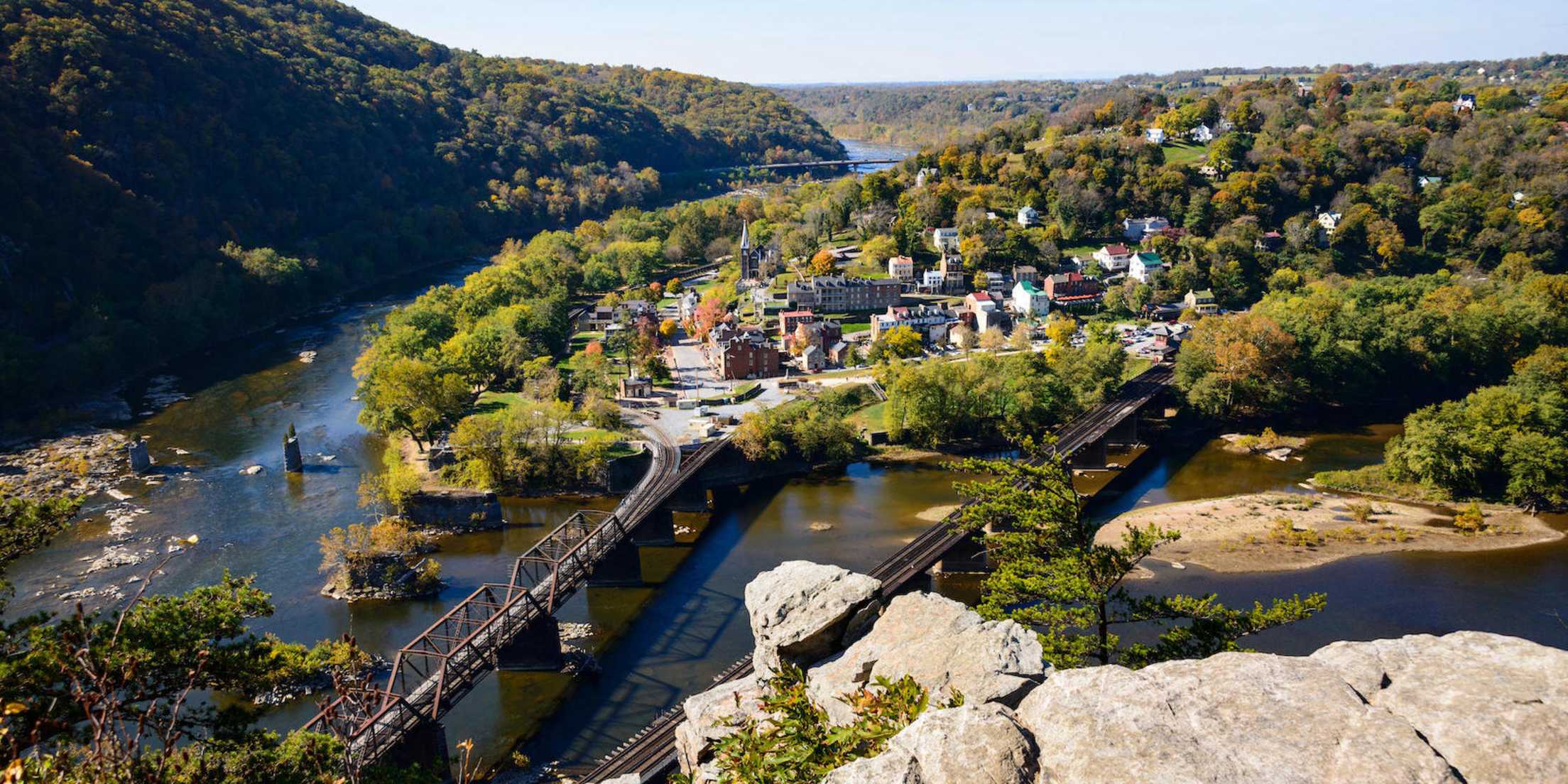
18 Historical Sites and Monuments to Celebrate African American History
The African American experience is at the forefront of these road trip destinations.

The National Park Service’s moving short film Twenty & Odd was produced in 2019 to mark the 400th anniversary of the arrival of the first African slaves in the American colonies, set to the stirring backdrop of Maya Angelou’s “Still I Rise.” The 18 destinations featured, stretching from New York to New Orleans, tell the powerful history of the African American experience in the United States, with parks, monuments, and historic sites illuminating the struggle, sacrifice, perseverance, and ingenuity of the community. Adding some of these destinations to your next family road trip will offer a life-changing perspective on the past as well as powerful insight into the social dialog of the present.
1. African Burial Ground National Monument (New York)
A moving memorial in the heart of Lower Manhattan sits on top of a six-acre burial site, reframing the history of the city through the experience of the thousands of enslaved and free Africans who lay at rest there.
2. Birmingham Civil Rights National Monument / 16th Street Baptist Church (Alabama)
On the morning of September 15, 1963, a group of girls were preparing for Sunday service in the basement of this church when a bomb went off. Nearly 60 years later, the 16th Street Baptist Church serves as a stark reminder of the horrors of segregation, and of the four lives lost that day.
3. Carter G. Woodson National Historic Site (Washington, D.C.)
The “Father of Black History” launched the precursor to Black History Month in 1926 from this Washington, D.C. home, which also served as the headquarters for the Association for the Study of African American Life and History.
4. Fort Monroe National Monument (Virginia)
Some say that the true story of America began here at Point Comfort, with the August 1619 arrival of “20. and odd” enslaved Africans aboard the English vessel White Lion.
5. Frederick Douglass National Historic Site (Washington, D.C.)
Frederick Douglass lived his final years at Cedar Hill, the charming house on a hill and centerpiece of this historic site. Visitors can explore the estate and marvel at the prolific work of the revered abolitionist.

The bombing of 16th Street Baptist Church in 1963 led to the death of four young girls.
6. Harpers Ferry National Historical Park (Maryland, Virginia, West Virginia)
At the confluence of the Potomac and Shenandoah rivers sits Harpers Ferry, a remarkable reminder to the complexities of American history. From abolitionist John Brown’s bloody precursor to the Civil War, to the founding of one of the first integrated schools in the United States in Storer College, Harpers Ferry tells a story that is uniquely American.
7. Maggie L. Walker National Historic Site (Virginia)
As the first African American woman to charter a bank in the United States, Maggie Lena Walker is an inspiration to African Americans, women, and people with disabilities to this day.
8. Martin Luther King, Jr. National Historical Park (Georgia)
The incalculable impact of Martin Luther King, Jr. is woven into American life like few other figures in history. King’s timeless teachings spring to vivid life in his childhood home, a must-visit memorial in the heart of Atlanta.
9. Monocacy National Battlefield (Maryland)
This was the site of a Confederate victory in July 1984, which, despite its outcome, was a turning point in the war in favor of the Union, who used the diversion to reinforce the defenses of nearby Washington, D.C. Before that, the site was home to l’Hermitage, a slave plantation with a particularly inhumane reputation, even for the time.
10. National Capital Parks-East / Anacostia Park (Washington, D.C.)
A beautiful public park on the banks of its namesake river, Anacostia Park is a welcome respite from the city and a stone’s throw from the home where Frederick Douglass spent his final years.
11. National Mall and Memorial Parks / African American Civil War Memorial (Washington, D.C.)
As part of the National Mall and Memorial Parks in Washington, D.C., this museum pays tribute to the service of more than 200,000 African Americans who fought during the Civil War. Making up a tenth of the total manpower of the Union Army, these brave soldiers played an integral role in toppling slavery.

Harpers Ferry sits at a beautiful confluence of the Potomac and Shenandoah rivers.
12. Selma to Montgomery National Historic Trail / Edmund Pettus Bridge (Alabama)
Edmund Pettus Bridge, where the Civil Rights Movement came to a head on Bloody Sunday in March 1965, stands as a reminder of the bravery and determination of those who walked this span across the Alabama River that day.
13. Tuskegee Airmen National Historic Site (Alabama)
Here at Moton Field, the Tuskegee Airmen were subjected to a series of humiliating tests, an “experiment” by the U.S. Army Air Corps to determine whether African Americans, then still citizens of Jim Crow America, had the mental capacity and ability to fly. Of course, they passed, and many flew on to have distinguished records in the Second World War.
14. New Orleans Jazz National Historical Park (Louisiana)
Follow up a night in New Orleans’ hopping jazz scene by celebrating the genre itself, in the city where it all started. Walking tours and a visit to the New Orleans Jazz Museum are must-dos for anyone who loves music and wants to honor the pioneers of this wholly American sound.
15. Stonewall National Monument (New York)
At the tail end of a decade defined by a multi-front struggle for civil rights, this bar in Greenwich Village was the target of a police raid that sparked a new era in the LGBTQ rights movement.
16. Rock Creek Park / Meridian Hill Park (Washington, D.C.)
While not officially carrying the moniker “Malcolm X Park,” this urban escape is sometimes referred to as such after activist Angela Davis proposed the name change at a 1969 rally. Today, lively drum circles are a regular feature, along with a majestic 13-basin fountain called Cascading Waterfall.
17. Emancipation Oak at Hampton University (Virginia)
An early symbol of changing tides and burgeoning opportunity for the South’s growing freed slave community during the Civil War, Hampton University’s majestic Emancipation Oak was the site of the first reading of President Lincoln’s Emancipation Proclamation in the South.
18. Founders Library at Howard University (Washington, D.C.)
An icon and center of study of this groundbreaking university, Founders Library was also the home of Howard’s School of Law in the 1950s, where alumnus Thurgood Marshall’s Brown v. Board of Education argument was crafted.